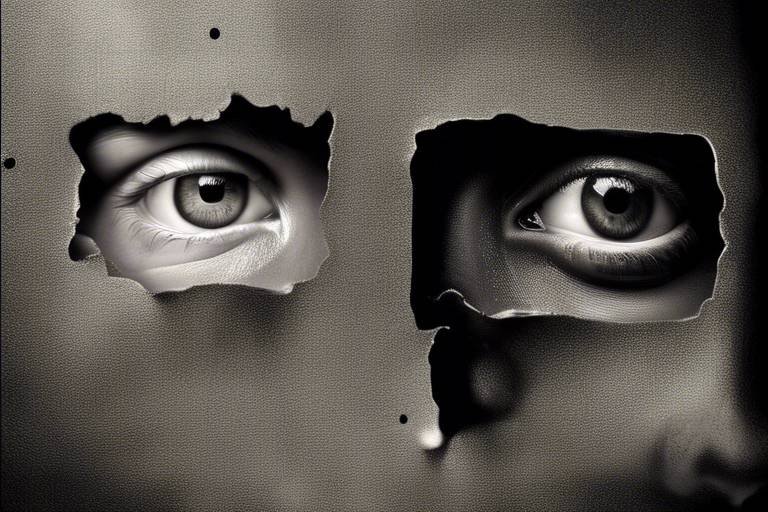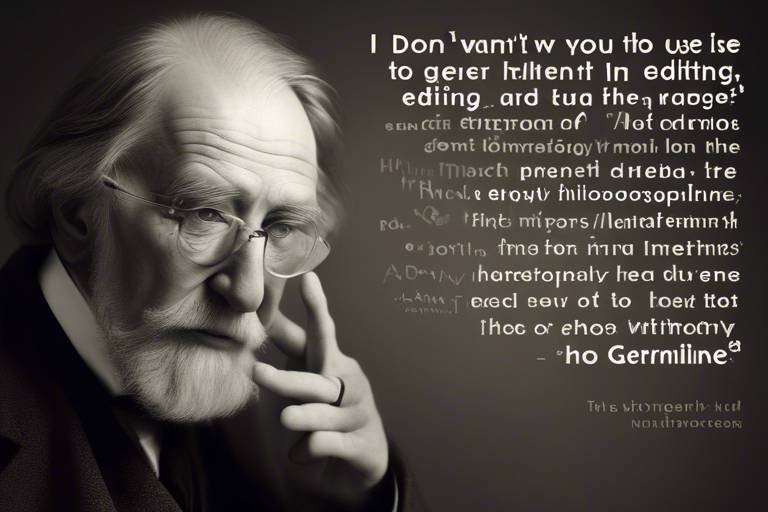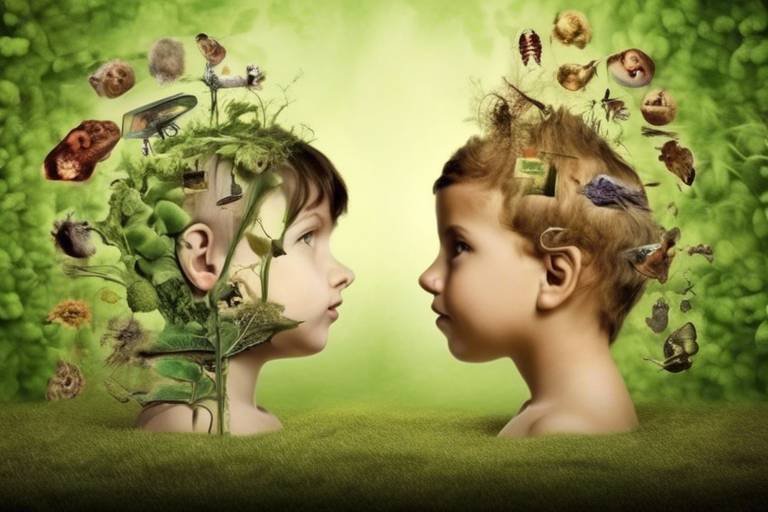Is Reality As We Perceive It? A Philosophical Debate
Have you ever stopped to think about whether what you see, hear, and feel is truly real? This question has puzzled philosophers, scientists, and thinkers for centuries. The debate surrounding the nature of reality and our perception of it is as old as time itself. In this article, we will dive deep into the philosophical discussions that challenge our understanding of existence. Are we merely observers of a world that exists independently, or is our perception the very fabric of reality itself? Buckle up as we embark on this intellectual journey!
At its core, the nature of reality encompasses the fundamental essence of existence. What does it mean for something to be real? Is it merely a collection of sensory experiences, or does it extend beyond our perceptions? Philosophers have long debated these questions, offering various viewpoints that shape our understanding. For instance, some argue that reality is an objective entity that exists outside of our consciousness, while others suggest that reality is a subjective experience, shaped by our thoughts and emotions. This duality raises intriguing questions about the very nature of truth and existence. Are we living in a world that is universally understood, or is it a unique tapestry woven from our individual experiences?
To truly grasp the complexity of reality, we must explore key philosophical theories that have emerged throughout history. Two of the most prominent perspectives are realism and idealism. These schools of thought provide contrasting interpretations of the relationship between the mind and the external world, each offering compelling arguments that challenge our perceptions.
In the battle of realism versus idealism, we find ourselves at a crossroads. Realism posits that reality exists independently of our perceptions; it is a world governed by laws and truths that remain constant regardless of human experience. On the other hand, idealism suggests that reality is a mental construct, shaped by our thoughts and perceptions. This clash between the two philosophies raises questions such as: If reality is independent, how do we account for the subjective nature of human experience? Conversely, if reality is constructed, what does that mean for our understanding of truth?
Realism asserts that there is a reality that exists outside of our minds. This perspective emphasizes the importance of objective truths that can be discovered through observation and reason. For example, the laws of physics dictate how objects behave in the universe, irrespective of our beliefs or perceptions. The implications of realism are profound, as they suggest that there is a world out there waiting to be understood, independent of our subjective interpretations.
In contrast, idealism proposes that reality is fundamentally mental. According to this view, our perceptions shape our understanding of the world around us. Think of it like a painter creating a masterpiece; the canvas (reality) is transformed by the artist's (mind's) brushstrokes (perceptions). This perspective emphasizes the role of consciousness in constructing our experiences, leading to the idea that reality may differ significantly from one individual to another.
Another fascinating approach to understanding reality is through phenomenology, which focuses on the study of conscious experience. This philosophical method encourages us to examine our perceptions without preconceived notions, allowing us to uncover the essence of our experiences. By doing so, we can better understand how our perceptions shape our understanding of reality. It challenges us to ask: What is it like to experience the world from another's perspective? This inquiry can lead to a richer appreciation of the complexities of existence.
Language plays a crucial role in shaping our perception of reality. It is not just a tool for communication; it influences how we think and interpret our experiences. The words we use can frame our understanding, often limiting or expanding our worldview. For instance, consider how different cultures have unique words for concepts that may not exist in other languages. This linguistic diversity highlights the relationship between language and perception, suggesting that our understanding of reality is intricately tied to the language we speak.
The theory of linguistic relativity posits that the structure of a language affects its speakers' worldview and cognition. This means that the way we think is shaped by the language we use. For example, speakers of languages with multiple words for "snow" may perceive and interact with snowy environments differently than those with a single term. This fascinating interplay between language and thought raises questions about how our perceptions of reality are constructed.
Metaphors also play a significant role in shaping our understanding of complex ideas. They serve as bridges between the known and the unknown, allowing us to grasp abstract concepts by relating them to familiar experiences. For instance, when we say "time is money," we are using a metaphor that shapes our perception of time as a valuable resource. This linguistic tool not only enriches our communication but also influences how we perceive and interpret reality.
As we venture into the realm of science, we find that advancements in fields such as physics and psychology challenge and refine our understanding of reality. Scientific inquiry often confronts our perceptions, revealing complexities that can be both surprising and enlightening.
Quantum mechanics, for instance, raises profound questions about the nature of reality. Concepts like superposition and entanglement challenge classical notions of existence, suggesting that particles can exist in multiple states simultaneously and that they can be interconnected regardless of distance. This mind-bending reality invites us to reconsider our understanding of the universe and our place within it.
Additionally, psychology reveals how cognitive biases and neurological processes influence our perception of reality. Our brains interpret sensory information in ways that can be misleading, leading us to perceive the world through a lens colored by our past experiences and biases. Understanding these psychological factors is crucial in unraveling the complexities of how we perceive reality.
In conclusion, the debate over reality and perception is a rich tapestry of philosophical inquiry, scientific exploration, and linguistic nuance. As we navigate this intricate landscape, it becomes clear that questioning our perceptions is essential in our pursuit of knowledge. By engaging with these concepts, we not only expand our understanding of existence but also deepen our appreciation for the diverse perspectives that shape our world.
- What is the difference between realism and idealism? Realism posits that reality exists independently of our perceptions, while idealism suggests that reality is mentally constructed.
- How does language influence our perception of reality? Language shapes our thoughts and interpretations, often framing our understanding of experiences and concepts.
- What role does phenomenology play in understanding reality? Phenomenology emphasizes the study of conscious experience, allowing us to examine our perceptions without preconceived notions.
- How does quantum mechanics challenge our understanding of reality? Quantum mechanics introduces concepts like superposition and entanglement, suggesting that reality may be more complex than classical physics implies.

The Nature of Reality
When we dive into the concept of reality, we find ourselves navigating a vast ocean of philosophical thought, each wave representing a different perspective on what reality truly is. At its core, reality can be understood as the state of things as they exist, independent of our perceptions. However, this straightforward definition quickly becomes complex when we consider how our subjective experiences shape our understanding of what is real. Imagine reality as a grand tapestry, woven from the threads of our experiences, beliefs, and perceptions. Each person's tapestry is unique, colored by their individual experiences, societal influences, and cultural backgrounds.
To further explore this intricate web, we can categorize reality into two main types: the objective reality that exists outside of us and the subjective reality that is shaped by our personal experiences. Objective reality is like a sturdy foundation, unyielding and constant, while subjective reality is akin to a fluid river, constantly changing and adapting based on our thoughts and feelings.
Philosophers have long debated the essence of reality. For instance, consider the work of Immanuel Kant, who argued that our understanding of reality is filtered through our senses and cognitive faculties. According to Kant, we can never truly know the "thing-in-itself," or the objective reality, because we only experience the world through our own subjective lens. This leads us to ask: if our perceptions are inherently flawed, can we ever claim to truly understand reality?
Moreover, the phenomenon of cognitive biases plays a significant role in shaping our subjective reality. These biases can distort our perception, leading us to see the world not as it is, but as we interpret it. For example, the confirmation bias makes us more likely to notice information that supports our existing beliefs, while ignoring evidence that contradicts them. This not only influences our understanding of reality but also affects our interactions with others and the world around us.
In this context, it's essential to acknowledge the role of cultural narratives in shaping our perceptions of reality. Different cultures have unique stories and beliefs that influence how their members interpret their experiences. For instance, in some cultures, dreams are seen as a vital connection to the spiritual realm, while in others, they are dismissed as mere fantasies. This divergence highlights how reality is not a one-size-fits-all concept; rather, it is a mosaic of interpretations, shaped by the myriad of experiences and beliefs that humans hold.
In summary, the nature of reality is a multifaceted concept that challenges us to question our perceptions and assumptions. By recognizing the interplay between objective and subjective realities, we can begin to unravel the complexities of existence. Just as a painter uses different colors to create a masterpiece, our perceptions and experiences blend together to form the intricate picture of reality that we each see. The journey to understand reality is ongoing, filled with surprises and revelations that keep us questioning and exploring the world around us.
- What is the difference between objective and subjective reality?
Objective reality refers to the state of things as they exist independently of our perceptions, while subjective reality is shaped by our personal experiences and interpretations.
- How do cognitive biases affect our perception of reality?
Cognitive biases can distort our understanding of reality by leading us to favor information that aligns with our beliefs, while ignoring conflicting evidence.
- Can we ever truly know objective reality?
Philosophers like Immanuel Kant argue that our understanding of reality is always filtered through our senses and cognitive faculties, making it challenging to know objective reality fully.

Philosophical Perspectives
The exploration of reality is not just a scientific endeavor; it is deeply rooted in philosophy. Over centuries, thinkers have grappled with the question of what constitutes reality and how our perceptions shape or distort it. At the heart of this inquiry are two prominent philosophical theories: realism and idealism. These contrasting viewpoints provide a framework for understanding the complex relationship between our minds and the world around us.
Realism asserts that reality exists independently of our perceptions. This perspective suggests that the world is as it is, regardless of whether we perceive it accurately or not. For realism, truth is an objective quality that can be discovered through observation and reason. Imagine standing in front of a beautiful painting. According to realism, the painting exists with its colors and forms, independent of whether you appreciate it or not. This viewpoint has significant implications for our understanding of existence; it implies that there are truths about the world that remain constant, even when our perceptions are flawed.
On the other hand, idealism posits that reality is fundamentally mental and constructed by our perceptions. Idealists argue that what we consider "real" is deeply intertwined with our thoughts and experiences. To illustrate this, think about a dream. In your dream, the world feels incredibly real, yet it is entirely a product of your mind. Idealism suggests that our understanding of reality is shaped by our consciousness, making it subjective and variable. This perspective challenges the notion of an objective reality, suggesting instead that our experiences and interpretations are what truly define our existence.
To better understand these perspectives, let’s consider the following table that outlines key differences between realism and idealism:
| Aspect | Realism | Idealism |
|---|---|---|
| Nature of Reality | Exists independently of perception | Constructed by perception |
| Truth | Objective and discoverable | Subjective and variable |
| Role of the Mind | Passive observer | Active creator |
These philosophical perspectives do not exist in isolation. They interact and influence one another, leading to a rich tapestry of thought that has evolved over time. For instance, phenomenology, which focuses on conscious experience, bridges the gap between realism and idealism by emphasizing how our perceptions shape our understanding of reality. This approach encourages us to examine our experiences without preconceived notions, allowing for a deeper appreciation of the subjective nature of our reality.
In summary, the philosophical perspectives on reality—realism and idealism—offer us valuable insights into the nature of existence. They challenge us to consider not only what is real but also how our perceptions influence our understanding of that reality. As we navigate this complex landscape, it becomes clear that our quest for knowledge is as much about exploring the external world as it is about delving into the depths of our consciousness.
- What is realism? Realism is the philosophical stance that asserts that reality exists independently of our perceptions.
- What is idealism? Idealism suggests that reality is mentally constructed and is dependent on our perceptions and experiences.
- How do realism and idealism differ? Realism focuses on an objective reality, while idealism emphasizes the subjective nature of our experiences.
- What is phenomenology? Phenomenology is a philosophical approach that studies conscious experience and how it shapes our understanding of reality.

Realism vs. Idealism
The debate between realism and idealism has been a cornerstone of philosophical discourse for centuries, shaping our understanding of existence and perception. At its core, realism asserts that reality exists independently of our perceptions. This means that the world is as it is, regardless of whether we are aware of it or not. Imagine a tree falling in a forest: realism would argue that the tree's fall creates sound, even if no one is there to hear it. In contrast, idealism posits that reality is fundamentally shaped by our minds. According to this view, the tree’s existence is contingent upon someone perceiving it. Thus, if no one is around to witness the fall, it raises the question: did it really happen?
To further illustrate the differences between these two philosophies, consider the following table:
| Aspect | Realism | Idealism |
|---|---|---|
| Nature of Reality | Exists independently of perception | Constructed by the mind |
| Truth | Objective and universal | Subjective and individual |
| Example | A physical object exists regardless of observation | An idea or concept only exists when thought of |
Both perspectives offer compelling arguments and have influenced various fields, from science to art. Realism often aligns with the scientific method, which relies on observable phenomena and empirical evidence. Scientists, for example, seek to uncover truths that exist in the universe, regardless of human perception. On the flip side, idealism resonates with the human experience, emphasizing how our thoughts, feelings, and perceptions shape our understanding of reality. This can be particularly evident in art and literature, where the subjective interpretation of a piece can vary dramatically from person to person.
It's fascinating to see how these two philosophies interact in daily life. For instance, when we watch a movie, realism invites us to consider the film's narrative as a reflection of reality, while idealism encourages us to engage with our emotional responses and interpretations of the characters and plot. This interplay creates a rich tapestry of understanding that highlights the complexity of our existence.
Ultimately, the discussion between realism and idealism is not merely an academic exercise; it has profound implications for how we live our lives. Are we passive observers of a pre-existing world, or are we active creators of our own realities? This question invites us to reflect on our beliefs and the ways we perceive the world around us.
- What is realism? Realism is the philosophical stance that asserts that reality exists independently of our perceptions.
- What is idealism? Idealism is the belief that reality is mentally constructed and shaped by our perceptions.
- How do realism and idealism differ? Realism focuses on objective truths that exist regardless of human thought, while idealism emphasizes the subjective experience of reality.
- Can both perspectives coexist? Yes, many people find value in both perspectives, using realism to anchor their understanding of the physical world and idealism to explore personal interpretations and experiences.

Realism Defined
Realism is a philosophical doctrine that asserts the existence of an objective reality that is independent of our perceptions, thoughts, or beliefs. In simpler terms, it suggests that the world exists as it is, regardless of how we might interpret or experience it. Imagine standing in front of a beautiful landscape; realism posits that the mountains, trees, and rivers exist out there in their own right, independent of whether anyone is there to witness them or not. This perspective challenges us to consider the implications of a reality that persists beyond our subjective experiences.
One of the most compelling aspects of realism is its insistence on the existence of truth. According to realists, truth is not merely a construct of human thought but a reflection of the actual state of affairs in the world. This brings forth a significant question: If truth exists independently, how do we access it? This inquiry leads to the exploration of various methods of understanding reality, such as observation, scientific inquiry, and logical reasoning. Realism encourages a reliance on empirical evidence and rational discourse, suggesting that through these means, we can approach a clearer understanding of what is real.
Realism can be categorized into several branches, each exploring different dimensions of reality. For instance, metaphysical realism posits that the world is structured in a particular way, independent of our knowledge or beliefs about it. In contrast, ethical realism asserts that moral truths exist and are discoverable, much like scientific truths. To illustrate these ideas, consider the following table that outlines the distinctions between different types of realism:
| Type of Realism | Description |
|---|---|
| Metaphysical Realism | Claims that the world exists independently of our perceptions. |
| Ethical Realism | Posits that moral truths are objective and can be discovered. |
| Scientific Realism | Holds that scientific theories describe the world as it really is. |
In the realm of philosophy, realism stands in contrast to idealism, which suggests that reality is mentally constructed. This opposition raises intriguing questions about the nature of existence. Are we mere observers of a world that exists outside of us, or are we active participants in creating our own realities? Realism’s insistence on an objective world compels us to grapple with the idea that our perceptions, while valuable, may not fully capture the essence of what is real.
Ultimately, realism invites us to engage in a quest for truth, urging us to question our assumptions and seek a deeper understanding of the world around us. It challenges us to recognize that while our perceptions are crucial, they are only a part of a much larger, more complex reality that exists beyond our immediate awareness. This philosophical stance not only shapes our understanding of existence but also influences how we interact with the world, pushing us towards a more profound inquiry into the nature of reality itself.

Idealism Explained
When we dive into the realm of idealism, we're stepping into a fascinating world where the mind takes center stage, and reality is seen through a lens tinted by our thoughts and perceptions. At its core, idealism posits that the material world is not the ultimate reality; rather, it suggests that our mental constructs shape what we perceive as real. Imagine walking through a gallery of art, where each painting reflects not just the artist's hand but also the viewer's interpretation. In this way, idealism argues that reality is akin to a canvas, painted by our consciousness.
One of the most intriguing aspects of idealism is its historical roots, tracing back to philosophers like Plato, who famously suggested that the physical world is merely a shadow of a higher, more perfect reality—the world of forms. Plato's allegory of the cave illustrates this beautifully: prisoners in a cave see only shadows on the wall, mistaking them for reality. In contrast, the idealist believes that true understanding comes from grasping the essence of these forms, which exist beyond our immediate sensory experience.
Moreover, idealism challenges us to reconsider how we interact with the world. It raises questions like: Are we merely passive observers of reality, or are we active participants in creating it? This philosophical stance suggests that our thoughts, beliefs, and perceptions play a crucial role in shaping our experiences. For instance, if you approach a new situation with a positive mindset, you're likely to perceive it more favorably than if you approached it with skepticism. This interplay between thought and reality can be likened to a dance, where each step influences the rhythm of existence.
In the modern philosophical landscape, idealism has evolved into various strands, including subjective idealism, which argues that reality is dependent on individual perception, and objective idealism, which posits that while reality exists independently, it is still fundamentally shaped by our consciousness. This divergence leads to rich discussions about the nature of existence itself. To illustrate these concepts, consider the following table:
| Type of Idealism | Description |
|---|---|
| Subjective Idealism | Reality is dependent on individual perception; what is real is shaped by personal experiences. |
| Objective Idealism | Reality exists independently but is fundamentally influenced by collective consciousness and ideas. |
Ultimately, idealism invites us to engage in a deeper exploration of our own minds. It compels us to ask ourselves how our beliefs and perceptions influence our understanding of the world. Are we, in fact, the architects of our realities? The implications of this philosophical perspective are profound, as they suggest that by altering our thoughts, we might also alter our experiences. This idea is not just a philosophical musing; it has practical applications in areas like psychology and self-improvement, where the power of positive thinking can lead to transformative changes in one’s life.
In conclusion, idealism offers a compelling framework for understanding the intricate relationship between our minds and the world around us. It challenges us to recognize that reality is not just something we observe but something we actively participate in creating. So, the next time you find yourself pondering the nature of reality, remember that your thoughts are not mere reflections; they are powerful tools shaping the very essence of your existence.
- What is idealism in philosophy? Idealism is the philosophical belief that reality is fundamentally shaped by our perceptions and consciousness.
- Who are the key philosophers associated with idealism? Notable philosophers include Plato, George Berkeley, and Immanuel Kant.
- How does idealism differ from realism? While realism posits that reality exists independently of our perceptions, idealism suggests that our mental constructs shape our understanding of reality.
- Can idealism be applied in everyday life? Yes, by recognizing the influence of our thoughts and beliefs, we can actively shape our experiences and perceptions of reality.

Phenomenology and Perception
Phenomenology is a philosophical approach that dives deep into the nature of consciousness and the experiences that shape our understanding of reality. At its core, phenomenology emphasizes the importance of subjective experience; it’s all about how we perceive the world around us and the meanings we attach to those perceptions. Imagine walking through a bustling market, the vibrant colors of fruits and vegetables, the cacophony of voices, and the tantalizing smells wafting through the air. Each of these elements contributes to your unique experience, and phenomenology seeks to unpack that rich tapestry of sensations and emotions.
One of the central figures in phenomenology, Edmund Husserl, argued that to understand reality, we must first examine our experiences without preconceived notions. This means setting aside our biases and assumptions to truly grasp the essence of what we observe. For instance, when you see a beautiful painting, your perception is influenced not just by the colors and shapes on the canvas, but also by your personal history, emotions, and cultural background. This interplay between perception and experience is what phenomenology seeks to explore.
In phenomenology, the concept of intentionality is crucial. This refers to the idea that consciousness is always directed towards something; it’s not just a passive vessel. When you think about your favorite song, your mind is actively engaging with that memory, creating a bridge between the past and the present. This intentionality highlights how our perceptions are not isolated events but are interconnected with our thoughts, feelings, and actions.
To illustrate this further, consider the following aspects of phenomenology that shape our perception:
- Embodiment: Our physical body plays a vital role in how we experience the world. The sensations we feel—like the warmth of the sun or the chill of a breeze—are integral to our understanding of reality.
- Context: The environment in which an experience occurs can drastically alter our perception. The same sound might evoke joy at a concert but irritation when heard in a crowded subway.
- Interpersonal Relationships: Our interactions with others can shape our perceptions. A shared experience, like watching a movie with friends, is often more meaningful than experiencing it alone.
Phenomenology invites us to reflect on our experiences and consider how they inform our understanding of reality. It encourages us to ask questions like: What does it mean to truly perceive something? and How do our experiences shape our beliefs about the world? By engaging with these questions, we can gain deeper insights into not only our own perceptions but also the nature of reality itself.
In conclusion, phenomenology provides a powerful lens through which we can examine the intricate relationship between perception and reality. It reminds us that our experiences are not mere reflections of an external world; they are vibrant, dynamic interactions that shape our understanding of existence. As we continue to explore this fascinating field, we uncover layers of meaning that enrich our comprehension of life and the world around us.
- What is phenomenology? Phenomenology is a philosophical approach that focuses on the study of conscious experience and how it shapes our understanding of reality.
- Who is the founder of phenomenology? The founder of phenomenology is Edmund Husserl, who emphasized the importance of subjective experience in understanding reality.
- How does phenomenology differ from other philosophical approaches? Unlike other philosophical approaches that may focus on abstract concepts or objective truths, phenomenology emphasizes personal experience and the meanings attached to those experiences.

The Role of Language
Language is not just a tool for communication; it's a powerful lens through which we interpret and understand our reality. Have you ever thought about how the words we use can shape our thoughts and perceptions? It's fascinating to consider that the very structure of our language might influence how we see the world around us. This concept is often referred to as linguistic relativity, which suggests that the language we speak affects our worldview and cognition. For instance, speakers of different languages may categorize colors or emotions differently based on the vocabulary available to them. This leads us to wonder: does our language limit our perception of reality, or does it enrich it?
To delve deeper, let's explore some intriguing aspects of how language shapes our understanding:
- Conceptual Frameworks: The frameworks we use to interpret our experiences are often rooted in language. For example, if a culture has multiple words for snow, its speakers may perceive and interact with snow differently than those who have only one word for it.
- Descriptive Limitations: Certain languages may lack words for specific concepts, which can restrict speakers from fully expressing or even experiencing those ideas. Imagine trying to describe a complex emotion that has no direct translation in your language!
- Cultural Nuances: Language carries cultural significance. The idioms and expressions unique to a language can provide insight into the values and beliefs of the speakers, further shaping their perception of reality.
Furthermore, metaphors play a crucial role in how we understand complex ideas. They can simplify intricate concepts and make them relatable. For instance, when we say "time is money," we're not just making a statement; we're framing our understanding of time in a way that emphasizes its value. This metaphor can influence how we prioritize tasks and perceive the urgency of our actions. Language, therefore, acts as a bridge connecting abstract concepts to our lived experiences.
In essence, the role of language in shaping our perception of reality is profound. It not only facilitates communication but also molds our thoughts, influences our emotions, and even dictates how we interact with the world. As we continue to explore the interplay between language and perception, it becomes increasingly clear that our understanding of reality is as much about the words we use as it is about the experiences we have. So, the next time you find yourself lost in thought about the nature of reality, consider the language that frames your understanding. Could it be that the way we articulate our thoughts shapes our very perception of existence?

Linguistic Relativity
The concept of proposes that the structure of a language significantly influences its speakers' worldview and cognition. It suggests that the way we think is shaped by the language we use. This idea can be quite mind-bending, right? Imagine if the words we choose and the grammar we follow actually dictate how we perceive reality! The implications of this theory extend far beyond mere semantics; they touch upon the very core of human experience and understanding.
One of the most notable proponents of this theory was the linguist Benjamin Lee Whorf, who argued that different languages impose different ways of thinking. For instance, in languages like Hopii (a Native American language), there are multiple ways to describe the same event, emphasizing aspects that English might overlook. This can lead speakers to focus on particular details that English speakers might not even consider. Whorf famously illustrated this with the example of how the Inuit people have numerous words for snow, which reflects their deep connection and understanding of their environment.
To further illustrate the concept, consider the following examples:
- Color Perception: In some languages, there are no distinct words for colors we commonly recognize. For example, the Russian language has different terms for light blue and dark blue, which can influence how speakers of Russian perceive these colors compared to English speakers, who only have one word: blue.
- Time Conceptualization: In English, we often think of time as a linear progression (past, present, future). However, in some cultures, time is viewed cyclically. This difference shapes how individuals in those cultures plan, prioritize, and reflect on their lives.
These examples showcase how language does more than just facilitate communication; it actively shapes our thoughts and perceptions. The implications of linguistic relativity extend into various fields, including psychology, anthropology, and even philosophy. Understanding that our language can influence our thought processes opens up a new realm of inquiry into how we perceive reality and interact with the world around us.
Moreover, the theory of linguistic relativity invites us to consider the limitations of our own linguistic frameworks. If our language shapes our thoughts, then what happens when we encounter ideas that our language struggles to express? This challenge often leads to the creation of new words or phrases, showcasing the dynamic relationship between language and thought. As languages evolve, so too do our perceptions of reality, suggesting a continuous interplay between the two.
In conclusion, the concept of linguistic relativity not only enriches our understanding of language but also prompts us to reflect on our own perceptions of reality. As we navigate our daily lives, it’s fascinating to think about how the words we choose might shape our experiences and understanding of the world around us.

Metaphors in Understanding
Metaphors are not just figures of speech; they are fundamental to how we comprehend the world around us. Imagine trying to explain a complex idea without any relatable context. It would be like trying to navigate a foreign city without a map. Metaphors serve as our mental maps, guiding us through unfamiliar territories of thought and experience. They allow us to draw connections between disparate concepts, making the abstract tangible and the complex comprehensible.
For instance, when we say "time is a thief," we are not just being poetic; we are invoking a metaphor that encapsulates the essence of how fleeting and elusive time can feel. This metaphor resonates deeply because it taps into our shared human experiences. We all feel the pressure of time slipping away, and by framing it as a thief, we capture that emotion in a way that is immediately relatable. This is the power of metaphors—they shape our understanding and influence our perceptions of reality.
Moreover, metaphors shape our thoughts in profound ways. The theory of conceptual metaphors suggests that our understanding of one idea is often rooted in our understanding of another. For example, the metaphor "argument is war" shapes how we engage in discussions. We might say things like "I attacked his position" or "he defended his ideas." This language not only reflects our approach to arguments but also reinforces a combative mindset towards discourse. Consequently, the metaphors we use can either limit or expand our understanding of reality, influencing our interactions and societal norms.
To illustrate this further, consider the following table that highlights some common metaphors and their implications:
| Metaphor | Implication |
|---|---|
| Life is a journey | Encourages growth and exploration; emphasizes progress and direction. |
| Time is money | Highlights the value of time; promotes a sense of urgency and productivity. |
| Love is a game | Suggests strategies and competition in relationships; can trivialize emotional connections. |
As we can see, metaphors not only enrich our language but also frame our understanding of various aspects of life. They can inspire us, challenge us, and sometimes even limit our perspectives. By becoming aware of the metaphors we use, we can start to dissect our thought processes and question the assumptions that underlie our perceptions of reality. Are we stuck in a metaphor that no longer serves us? Or are we embracing metaphors that empower and broaden our understanding?
In conclusion, metaphors are powerful tools that shape our cognition and perception. They bridge the gap between the known and the unknown, allowing us to navigate the complexities of existence. By recognizing the metaphors we employ, we can gain insight into our own thought patterns and, ultimately, our understanding of reality itself.
- What is the role of metaphors in communication? Metaphors help convey complex ideas in relatable terms, making communication more effective and engaging.
- How do metaphors influence our perception of reality? They shape our understanding by framing concepts in ways that resonate with our experiences, potentially limiting or expanding our viewpoints.
- Can metaphors change over time? Yes, as cultures evolve, so do the metaphors we use, reflecting changes in societal values and perspectives.
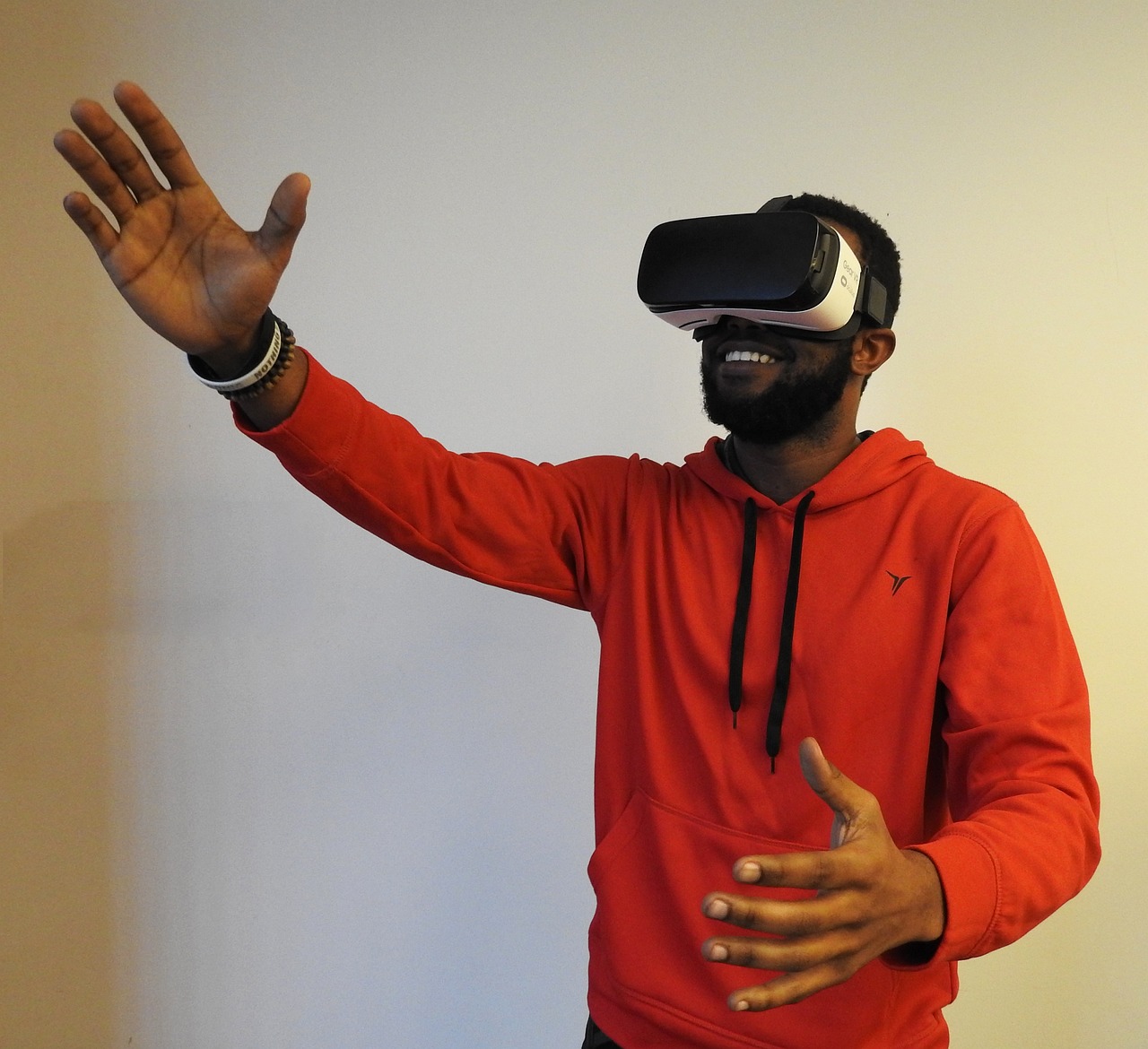
Scientific Perspectives on Reality
When we dive into the realm of science, we uncover layers of complexity that challenge our everyday understanding of reality. Science, often seen as the ultimate arbiter of truth, provides insights that can be both illuminating and perplexing. For instance, the advent of quantum mechanics has fundamentally altered our perception of the universe. No longer can we comfortably assume that particles exist in a defined state; instead, concepts such as superposition and entanglement suggest a reality that is interconnected and probabilistic. Imagine a world where particles can exist in multiple states at once, or where the behavior of one particle can instantaneously affect another, regardless of distance. This is not just science fiction; it’s the bizarre yet fascinating nature of quantum reality.
Furthermore, the field of psychology also plays a crucial role in shaping our understanding of reality. Our brains are not mere passive receivers of information; they actively construct our perception based on a myriad of factors. Cognitive biases, for example, can skew our understanding of reality, leading us to see what we want to see rather than what is actually there. Confirmation bias, where individuals favor information that confirms their preexisting beliefs, is a classic example. This psychological lens can distort our interactions with the world around us, making it essential to recognize how our minds can shape our perceived reality.
To illustrate the interplay between scientific inquiry and our perception of reality, consider the following table that summarizes key scientific theories and their implications:
| Theory | Implication on Reality |
|---|---|
| Quantum Mechanics | Challenges classical notions of reality; introduces concepts like superposition and entanglement. |
| Relativity | Shows that time and space are not absolute, altering our understanding of the universe's structure. |
| Cognitive Psychology | Highlights how our mental processes influence our perception of reality, often leading to biases. |
As we explore these scientific perspectives, it becomes clear that our understanding of reality is not only shaped by what we observe but also by how we interpret those observations. The scientific method encourages skepticism and inquiry, prompting us to question the very fabric of what we consider to be real. This quest for understanding is not just an academic pursuit; it has profound implications for how we live our lives and interact with the world.
- What is quantum mechanics? Quantum mechanics is a fundamental theory in physics that describes the physical properties of nature at the scale of atoms and subatomic particles.
- How does psychology affect our perception of reality? Psychology examines how our thoughts, feelings, and behaviors influence our interpretation of the world, often leading to cognitive biases that can distort our understanding.
- Can science fully explain reality? While science provides valuable insights into the nature of reality, it is an ongoing process of discovery, and many aspects of existence remain mysterious and open to interpretation.
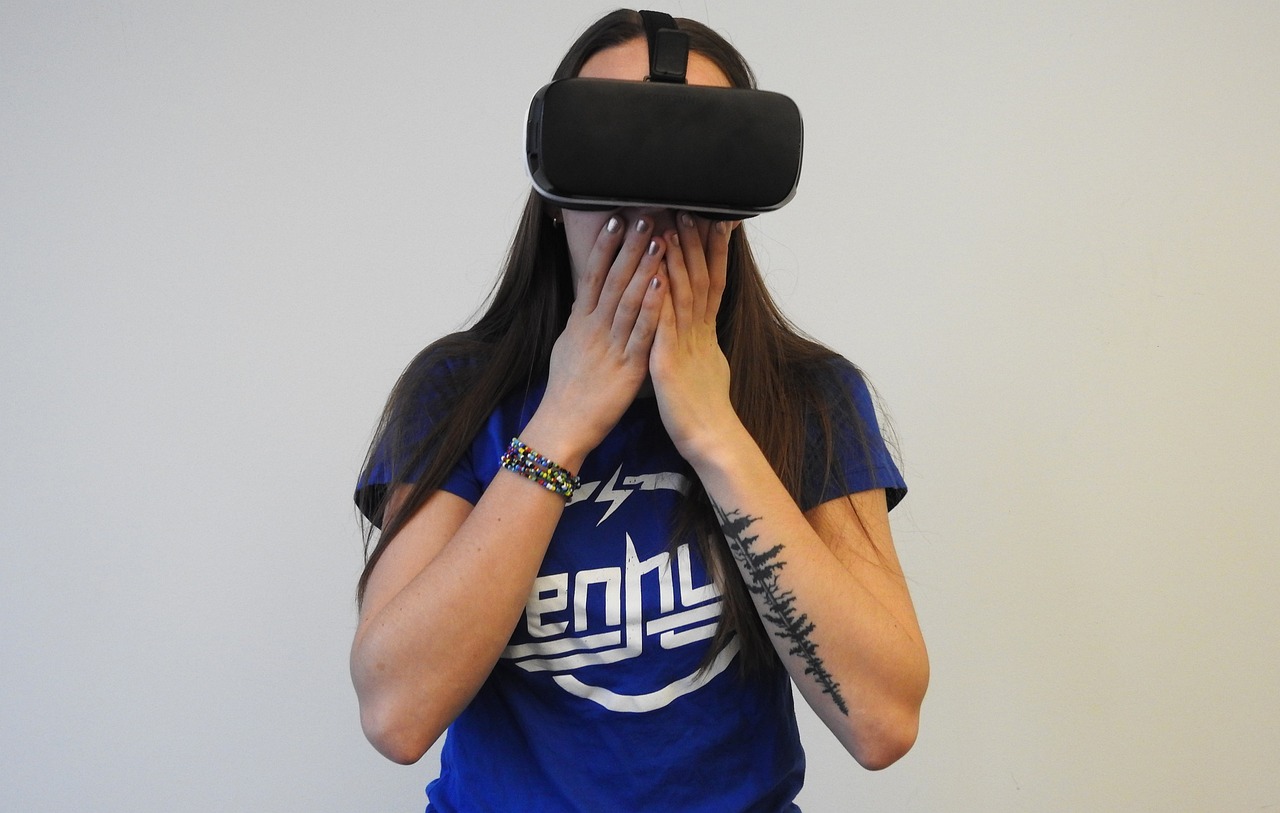
Quantum Mechanics and Reality
When we dive into the realm of quantum mechanics, we enter a world that challenges our very understanding of reality. Unlike the classical physics that governs our everyday experiences, quantum mechanics introduces a fascinating layer of complexity that can leave even the sharpest minds scratching their heads. Imagine a universe where particles can exist in multiple states at once, or where the act of observation alters the outcome of an event. This is not science fiction; it's the reality that quantum physics unveils.
One of the most mind-bending concepts in quantum mechanics is superposition. In simple terms, superposition suggests that a particle can be in multiple states simultaneously until it is observed. This leads to the famous thought experiment known as Schrödinger's cat, where a cat in a box can be both alive and dead until someone opens the box to check. This paradox raises profound questions about the nature of reality: Is the cat truly in a state of limbo, or does it only exist in one state when we look? Such questions challenge our traditional notions of existence and perception.
Another intriguing aspect is entanglement, where two particles become linked in such a way that the state of one instantly influences the state of the other, no matter how far apart they are. This phenomenon seems to defy the conventional laws of physics, suggesting a deeper connection between particles that transcends space and time. It’s as if the universe is a vast web, with every thread intricately woven into the fabric of reality. The implications of entanglement push us to reconsider the boundaries of our understanding, prompting questions like: What does it mean for something to be 'real' if it can be influenced instantaneously across vast distances?
To illustrate the contrast between classical and quantum realities, consider the following table:
| Aspect | Classical Physics | Quantum Mechanics |
|---|---|---|
| State of Particles | Definite state | Superposition of states |
| Observation | No effect on state | Affects state |
| Particle Interaction | Localized | Entangled across distances |
As we explore these concepts, it becomes clear that quantum mechanics doesn't just challenge our understanding of the physical world; it also invites us to reconsider our philosophical beliefs about reality itself. Are we merely observing a reality that exists independently, or are we actively shaping it through our perceptions? The interplay between observation and reality in quantum mechanics suggests that our consciousness might play a more significant role than we previously thought.
In conclusion, quantum mechanics serves as a powerful reminder that reality is not as straightforward as it seems. The more we learn about the quantum world, the more we realize that our perceptions may only scratch the surface of a much deeper, more complex reality. As we continue to unravel these mysteries, we are left with more questions than answers, fueling an ongoing quest for understanding that bridges the gap between science and philosophy.
- What is superposition in quantum mechanics? Superposition refers to the ability of a quantum system to be in multiple states at the same time until it is measured or observed.
- How does entanglement challenge classical physics? Entanglement suggests that particles can be interconnected in ways that allow for instantaneous influence over distance, defying classical ideas of locality.
- What philosophical implications arise from quantum mechanics? Quantum mechanics raises questions about the nature of reality, observation, and the role of consciousness in shaping our understanding of the universe.

Psychology of Perception
When we think about perception, we often overlook the intricate workings of our minds that shape how we interpret the world around us. The psychology of perception dives deep into the cognitive processes that influence our understanding of reality. It’s fascinating to consider how our brains filter and interpret sensory information, constructing a unique version of reality that may differ vastly from someone else's. This individual interpretation is not just a passive reflection of the world; it’s an active process influenced by a myriad of factors including past experiences, emotions, and even cultural background.
One of the key aspects to understand is how cognitive biases play a crucial role in shaping our perceptions. These biases are systematic patterns of deviation from norm or rationality in judgment, and they can significantly alter our understanding of reality. For example, the confirmation bias leads individuals to favor information that confirms their preexisting beliefs, while ignoring or dismissing evidence that contradicts them. This can create a skewed perception of reality, making it difficult for individuals to engage with differing viewpoints or new information.
Moreover, the brain's role in perception is not just a straightforward process of receiving data from our senses. Instead, it involves complex mechanisms of interpretation and contextualization. Our brains are wired to make sense of the chaos of sensory input through gestalt principles, which help us organize visual elements into groups or unified wholes. For instance, when we look at a series of dots, our minds might connect them to form a recognizable shape or figure, illustrating how perception is often more about the brain's interpretation than the actual sensory input.
To further illustrate the psychology of perception, let’s consider some common psychological phenomena that affect how we perceive reality:
- Illusions: Optical illusions are a classic example of how our perception can be deceived. They reveal the gaps between reality and our interpretation of it, showcasing the brain's reliance on context and expectation.
- Context Effects: The environment in which we perceive something can drastically change our interpretation. For example, the same color may appear differently depending on the colors surrounding it.
- Emotional State: Our emotions can color our perceptions. When we’re happy, we might see the world in a more positive light, while feelings of sadness can lead to a more negative interpretation of our surroundings.
Understanding the psychology of perception not only enhances our awareness of how we interpret the world but also encourages us to question our assumptions and biases. This awareness is essential in an increasingly complex world where multiple perspectives coexist. By recognizing that our perception is influenced by psychological factors, we can foster empathy and open-mindedness, allowing us to engage more deeply with others’ experiences and viewpoints.
- What is perception in psychology? Perception in psychology refers to the process by which individuals interpret and make sense of sensory information, influenced by various cognitive factors.
- How do cognitive biases affect perception? Cognitive biases can distort our interpretation of reality, leading us to favor information that aligns with our beliefs while ignoring contradictory evidence.
- What are some examples of perceptual illusions? Common examples include the Müller-Lyer illusion and the Kanizsa triangle, which demonstrate how our brains can misinterpret visual cues.
- Why is understanding perception important? Understanding perception is crucial for fostering empathy and effective communication, as it helps us appreciate the diverse ways individuals experience reality.
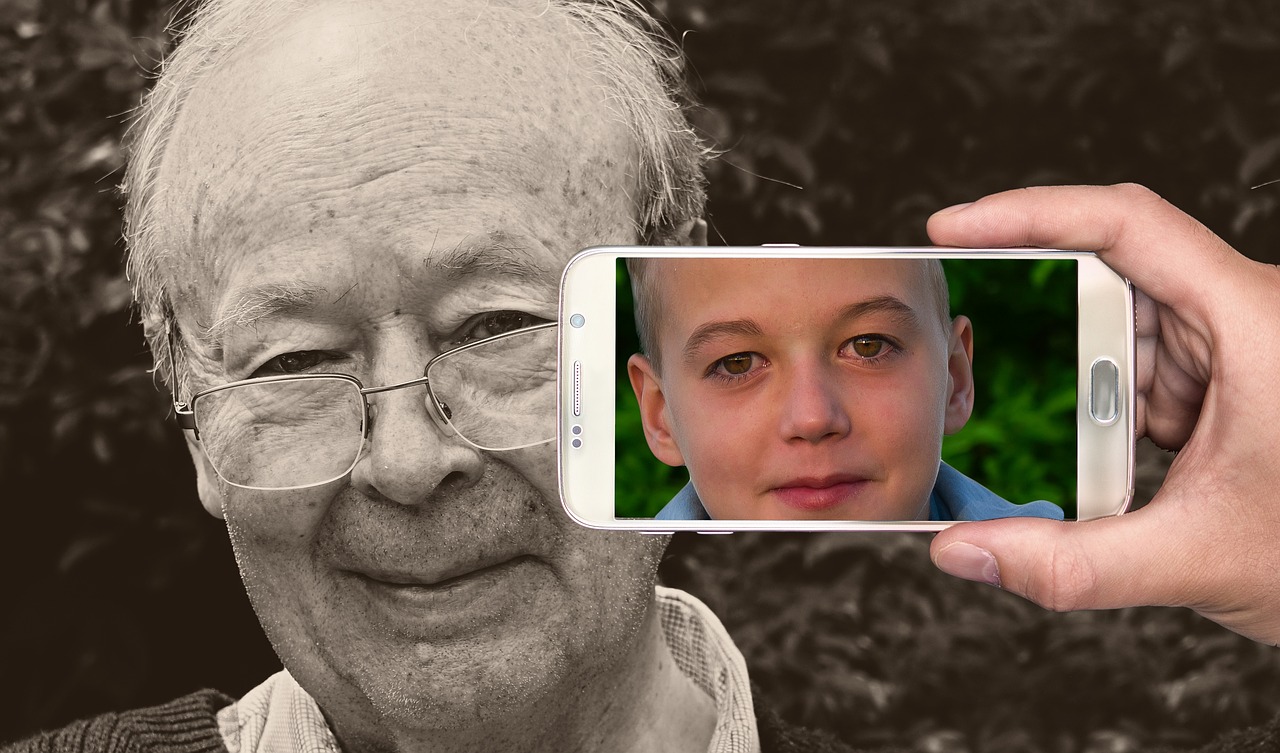
Conclusion: The Quest for Understanding
As we reach the end of our exploration into the intricate relationship between reality and perception, it's essential to acknowledge that this philosophical debate is not merely an academic exercise. It's a fundamental aspect of our existence. Every day, we navigate a world shaped by our perceptions, influenced by our experiences, language, and even the scientific frameworks we adopt. The quest for understanding reality is akin to peeling back the layers of an onion—each layer reveals more complexity and nuance, often leaving us with more questions than answers.
Throughout history, thinkers from various disciplines have grappled with these questions, leading to rich discussions that continue to evolve. Whether we lean towards realism, which asserts that an objective reality exists independently of our perceptions, or idealism, which suggests that our mental constructs shape reality, we are constantly challenged to reconsider our views. This ongoing dialogue invites us to question our assumptions and encourages a deeper inquiry into the nature of existence itself.
Moreover, the influence of language cannot be understated. How we articulate our thoughts profoundly impacts our understanding of reality. The concept of linguistic relativity suggests that the very structure of our language can shape our worldview, affecting everything from how we categorize experiences to how we perceive time and space. This interplay between language and perception is a reminder that our understanding of reality is often filtered through a complex lens of cultural and linguistic contexts.
In the realm of science, advancements in fields like quantum mechanics and psychology further complicate our understanding of reality. The bizarre principles of quantum mechanics, such as superposition and entanglement, challenge classical notions of existence and force us to rethink the boundaries of what is real. Similarly, psychological insights into perception reveal how cognitive biases and sensory interpretations can distort our understanding, highlighting the fragility of our perceived reality.
Ultimately, the quest for understanding is a continuous journey. It is a process that encourages us to remain curious, to ask questions, and to embrace the uncertainty that comes with exploring profound philosophical concepts. As we reflect on the nature of reality and perception, let us remember that the answers we seek may not always be clear-cut. Instead, it is the exploration itself—filled with surprises, challenges, and revelations—that enriches our understanding of existence.
- What is the main difference between realism and idealism?
Realism posits that reality exists independently of our perceptions, while idealism suggests that reality is mentally constructed. - How does language influence our perception of reality?
The structure and vocabulary of a language can shape how its speakers perceive and interpret their experiences, as suggested by the theory of linguistic relativity. - What role does psychology play in our understanding of reality?
Psychological factors, including cognitive biases and sensory processing, significantly influence how we perceive and interpret the world around us. - Can scientific advancements change our understanding of reality?
Yes, scientific discoveries, particularly in fields like quantum mechanics and psychology, challenge and refine our perceptions of what is real.
Frequently Asked Questions
- What is the nature of reality?
The nature of reality is a complex and multifaceted concept that encompasses everything that exists, whether we perceive it or not. Philosophers have debated this for centuries, exploring various viewpoints that differentiate between what is objectively real and our subjective experiences. Essentially, reality can be seen as the sum of all things that exist independently of our perceptions, but our understanding of it is heavily influenced by our senses and consciousness.
- How do realism and idealism differ?
Realism and idealism are two fundamental philosophical perspectives that offer contrasting views on the nature of reality. Realism asserts that reality exists independently of our perceptions, meaning that the external world is objective and can be understood through observation and experience. On the other hand, idealism posits that reality is mentally constructed, suggesting that our perceptions shape our understanding of what is real. This debate raises intriguing questions about the relationship between our minds and the world around us.
- What role does language play in shaping our perception of reality?
Language plays a crucial role in how we perceive and interpret reality. The theory of linguistic relativity suggests that the structure and vocabulary of a language can influence its speakers' worldview and cognitive processes. This means that the way we express ourselves through language can shape our understanding of complex ideas and experiences. Moreover, metaphors and linguistic expressions can serve as powerful tools in constructing our perceptions of reality, allowing us to make sense of abstract concepts.
- How does quantum mechanics challenge our understanding of reality?
Quantum mechanics introduces a fascinating layer of complexity to our understanding of reality. It challenges classical notions by presenting concepts such as superposition and entanglement, which suggest that particles can exist in multiple states simultaneously and can be interconnected regardless of distance. These ideas prompt us to reconsider what we know about the nature of existence and the limits of our perception, blurring the lines between reality as we perceive it and the underlying principles that govern it.
- What psychological factors influence our perception of reality?
Our perception of reality is significantly influenced by psychological factors, including cognitive biases, emotions, and past experiences. These elements shape how we interpret sensory information and make sense of the world around us. For example, cognitive biases can lead us to perceive information in a way that confirms our pre-existing beliefs, potentially distorting our understanding of reality. By recognizing these influences, we can become more aware of how our minds interpret the world and question our perceptions more critically.

